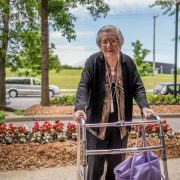Getting to Know the Best Doctors for Memory Care
The world is aging and so are its people. But while aging is all but a part of life, the effect the illness has on memory that afflicts millions of aging individuals is anything but normal.
According to the World Health Organization, at least 50 million people around the world are suffering from dementia and Alzheimer’s disease takes up about 70% of that number. WHO further clarifies: “Although dementia mainly affects older people, it is not a normal part of aging.”
Dementia and Alzheimer’s diseases have baffled experts for many years. But while the cure for these progressive conditions is still underway, memory care assisted living has helped patients function independently while dealing with memory loss and the other effects of these conditions. But for people who are just starting to experience the symptoms of dementia, here are the best doctors to go to for memory care:
A primary care physician
In most cases, the first person you’d like to see is your primary care physician, and this is no different from dementia. Once you start to notice any changes in cognition, it’s very important to seek consultation from your primary care physician right away so he can guide you through the rest of the treatment process.
A neurologist
Once you visit your PCP, several tests will be performed to make sure that what you’re experiencing are signs and symptoms of dementia or Alzheimer’s. At the end of these tests will be results that could lead to a diagnosis.
But in a lot of instances, a primary care physician would refer you to a neurologist or cognitive specialist for further testing and proper diagnosis, especially when test results are not that clear cut.
A psychologist
More than the physical symptoms, it is the psychological and emotional symptoms that will put more weight into your diagnosis. This is when it counts to have a social worker or psychologist to help you with counseling and support as you settle in to this new normal in your life.
If you need to move to memory care assisted living, the adjustment may seem difficult. But with the help of these professionals, you will be able to cope with the changes while keeping a positive mindset.
A physical therapist and nutritionist
A healthy lifestyle is one of the most important factors in memory care assisted living. Studies have shown that lifestyle changes could contribute to slowing the progression of the disease, so this is when having a nutritionist and physical therapist becomes beneficial.
These professionals will be able to help you make the right changes in your habits while making sure that you are safe.
At the end of the day, being diagnosed with dementia or Alzheimer’s and moving to a memory care assisted living facility is no easy journey. But with the right team by your side, you can guarantee the best outcomes from your disease.
After all, it’s about making the most out of your life and not letting dementia or any other health condition stop you from enjoying what life has to offer.
Fallbrook Assisted Living is proud to offer its services to Fremont, NE, and surrounding areas and cities: Arlington, Cedar Bluffs, Ames Nickerson, Fontanelle, Arlington, Leshara, Colon, and Hooper











